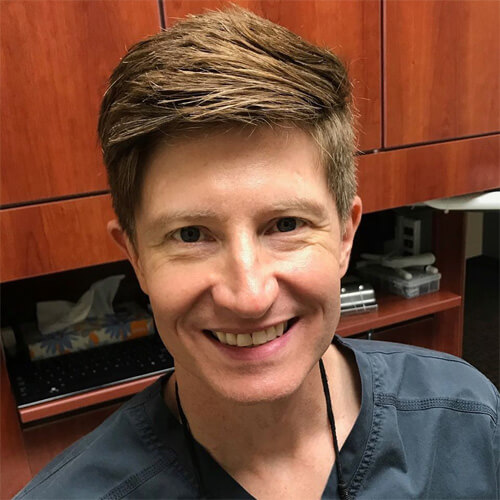Opening and closing your mouth occurs during an average day. Whether you are speaking, eating, or chewing a piece of gum, the movement of your jaw is often taken for granted. Imagine one day you wake up unable to open or close your mouth. This inability to move the jaw, known as lockjaw, can be extremely frightening and unnerving when it occurs and can be very painful.
At Soundview Family Dental, we understand how scary this can be and we are here to help when this happens. While determining the underlying cause of your lockjaw is essential, there are some things you can do at home to help alleviate the pain and relax the jaw muscles.
Key Takeaways
- Lockjaw, or trismus, is a condition where the jaw muscles spasm, limiting jaw movement and causing pain.
- Tetanus, caused by the bacterium Clostridium tetani, is a well-known cause of lockjaw.
- Soft tissue inflammation and TMJ disorders can also contribute to lockjaw.
- Home remedies include warm compresses, staying hydrated, eating foods rich in calcium and magnesium, gargling warm salt water, and doing jaw exercises.
- It’s important to consult with a dentist or physician to identify the underlying cause of lockjaw and receive appropriate treatment.
What is a lockjaw?
Also known as trismus, lockjaw is a spasm in the mastication muscles in the jaw. When these muscles spasm, they limit the ability of the jaw to open and close. It can affect speech and eating. Prolonged or regular locking also can interfere with oral hygiene. In most cases, it is temporary but can be permanent in severe cases. In severe cases, a lockjaw can alter your facial features. In addition to limiting jaw mobility, lockjaw is a painful condition.
What causes lockjaw?
There are various conditions that can cause lockjaw. While lockjaw itself is not a serious condition, the underlying conditions causing it can be. If you experience lockjaw, it is essential to see your doctor or dentist to determine the underlying cause in order to help reduce the chances of your jaw locking.
Tetanus
When you hear the term lockjaw, many people automatically connect tetanus. Tetanus is an infection caused by the bacterium Clostridium tetani. Spores of these bacteria are all over the environment such as soil, dust, and manure. When people think of tetanus risk, they think of getting stuck or scratched with a rusty nail. While this is a common way to get tetanus, other common ways include insect bites, dental infections, compound fractures, IV drug use, and intramuscular injections. These bacteria affect the muscles and the nervous system throughout the body, causing the muscles to tighten and contract. In the jaw, this often means locking in the open or closed position.
Soft tissue inflammation and TMJ disorders
While tetanus is the most well-known cause of lockjaw, it is not the most common. Inflammation of the soft tissue in the mouth is the leading cause of lockjaw. This inflammation can be caused by something as simple as too much chewing, such as regular gum chewing. Conditions affecting the temporomandibular joints of the jaw, known as TMJ disorders, also contribute to inflammation of the jaw muscles and lockjaw. In addition, oral diseases, fevers, and other mouth illnesses can cause inflammation, leading to lockjaw.
Home remedies for lockjaw
Home remedies for lockjaw are designed to help relax the muscles and reduce pain. However, before using any of these remedies, you need to talk with your dentist or physician. This is to identify the underlying cause of your lockjaw and treat that as well, which is important especially if you are experiencing lockjaw regularly.
Some common home remedies include:
- Warm compress – A warm compress, be it a warm cloth, heating pad, or hot water bottle, applied to the jaw can help soothe stiff muscles and reduce pain. This can be repeated throughout the day as needed to provide relief.
- Drink plenty of water – While drinking may be problematic with lockjaw, it is essential to stay hydrated. When your body becomes dehydrated, it affects the muscles’ relaxation and contraction ability, creating tension and contributing to lockjaw.
- Eat foods rich in magnesium and calcium – Calcium is vital to muscle contraction and relaxation, while magnesium plays an important in muscle relaxation. Foods such as milk and milk products, coconut, almonds, flax seeds, oats, spinach, and pumpkin can all help relax the muscles, allowing you to use your jaw normally again.
- Gargle warm salt water – Gargling warm water helps relax the nerves and muscles around the jaw, while the salt helps draw out any potential infections that may contribute to lockjaw.
- Jaw exercises – While these may be painful at first, jaw exercises can help unlock the jaw and relieve tension. While opening your jaw slightly, move your mouth from side to side in small movements.
Preventing lockjaw
Once you have experienced lockjaw, your goal is to prevent it from happening again. The key here is to address any underlying conditions. In the case of tetanus, a tetanus vaccine eliminates your risk. It is recommended adults receive tetanus boosters every ten years.
In cases of TMJ or other oral conditions, your goal is to address these conditions. If teeth grinding or clenching contribute to your TMJ, your dentist may recommend wearing mouth guards or other TMJ splints. Regular massage of the jaw muscles with your fingers and jaw exercises can help keep the jaw muscles functioning properly and reduce the risk of lockjaw.
At Soundview Family Dental, we understand how concerning lockjaw can be. If you have experienced this or are at risk due to underlying conditions, we are here to answer your questions. Our dentist will work with you to develop a personalized treatment plan to help stop it from reoccurring. For more information, visit us online or call our office at (425) 563-6360 to schedule a consultation.


